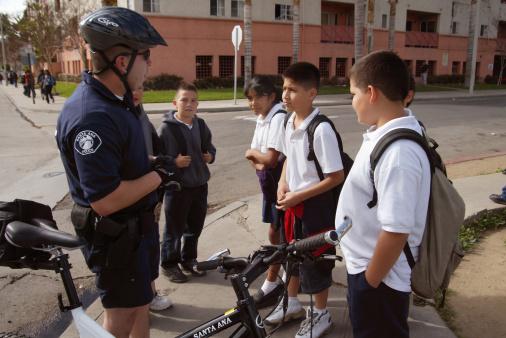It was the 1990s in a poor, sometimes desperate neighborhood. I heard and saw gunfire more times than I can count. Blood was not unknown. The one hopeful community garden was ripped out of the ground the night after it was planted. No one made a second attempt at a garden, not that decade.
Into that near-war zone came community police, in pairs, on bicycles, sometimes on foot, or in cars. I no longer remember most of their names. But I remember how they made me feel.
They could be trusted. They really were there to protect and serve. Not in the sarcastic slang of the day, in which serve was a synonym for “beat you to a pulp.”
A key part of this was that most of them looked like the people they were protecting. This is not true, of course, of the local police in Ferguson, Mo.
To these officers, the teens hanging around the streets of Summerhill and Boatrock looked like their own nephews, cousins, sons, and daughters. Nobody forced this ethnic mix. There were no ethnic or racial quotas, but once a group has political power, law enforcement starts looking like that powerful group.
No Panic
The community policing officers were chosen for this assignment because they were the best of the best. They were the ones who were not going to panic. They were the ones who were not going to lose their tempers.
They followed the law enforcement technique of verbal judo, after the book of the same name, in which a person calms a situation by showing respect and kindness. All of them were friendly, outgoing, humble kinds of people, and they were well-trained, you could tell.
Now I know that the 1990s were far from a golden age for good policing in my town. I know this because officers were leading robbing crews, and they got caught and convicted. Later, in 2006, they shot and killed a 92-year-old lady after using a no-knock warrant to break down her door.
Defuse, Protect
Yet the community policing worked. Those men and women were straight and ethical. I saw them defuse situations and protect people.
The bad cops got caught and received justice.
It can happen like that. The key to it is political power. Elect representatives who will make civil, respectful policing a priority.





